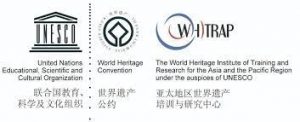Today Current Affairs: 2nd September 2021 for UPSC IAS exams, State PSC exams, SSC CGL, State SSC, RRB, Railways, Banking Exam & IBPS, etc
Table of Contents
The Fukutoku-Okanoba Submarine Volcano Exploded:

The Fukutoku-Okanoba Submarine Volcano exploded in the Pacific Ocean, off Japan.
- Earlier, a surge of Earthquakes and the ground swelling was noticed at Hawaii’s Kilauea Volcano.
- It is situated about 25 metres below the sea, five kilometres north of Japan’s South Iwo Jima Island.
- The plume reached a height of 16 kilometres above the surface, which poses a risk to the passage of planes and ships.
- Plume went straight from being a submarine event to an eruption cloud reaching the lower boundary of the Stratosphere, this is not very common for this type of volcano.
- Normally lower-level plumes are seen from submarine eruptions.
- Eruption and submarine hydrothermal activities often cause water discoloration in the area, and during eruption, the volcano has built several temporary new islands.
World Heritage Institute Of Training and Research – Asia Pacific:

The World Heritage Institute of Training and Research – Asia Pacific (WHITR-AP) has recognised CEPT (Centre for Environmental Planning and Technology, Gujarat) University’s programme in conservation and regeneration as a commended case of Global Innovation on World Heritage Education.
- The World Heritage Education Programme was initiated as a United Nations Educational, Scientific and Cultural Organization (UNESCO) special project in 1994.
- It gives young people a chance to voice their concerns and to become involved in the protection of common cultural and natural heritage.
- The WHITR-AP is a non-profit organization specialized in the area of heritage conservation.
- It is an institute under the auspices of UNESCO, it is the first one established in the developing countries.
- It is an autonomous institution at the service of member states and associate members of UNESCO.
- Mission:
- To strengthen implementation of the World Heritage Convention 1972 in the Asia and the Pacific region.
World Heritage Convention:
- It is one of the most important global conservation instruments which was created in 1972.
- Its mission is to identify and protect the world’s natural and cultural heritage considered to be of Outstanding Universal Value.
- It sets out the duties of States Parties in identifying potential sites and their role in protecting and preserving them.
- By signing the Convention, each country pledges to conserve not only the World Heritage sites situated on its territory, but also to protect its national heritage.
- The Convention is governed by the World Heritage Committee supported by the UNESCO World Heritage Centre, the secretariat for the Convention, and three technical advisory bodies to the Committee:
- International Union for Conservation of Nature (IUCN)
- International Council on Monuments and Sites (ICOMOS)
- International Centre for the Study of the Preservation and Restoration Cultural Property (ICCROM)
- India is a signatory to the convention and has 40 world heritage sites, which includes 32 cultural, 7 natural and one mixed property.
Ramappa Temple in Telangana was the 39th and Dholavira in Gujarat was India’s 40th world heritage site.
Loan Guarantee Scheme For Covid-affected Sectors (LGSCAS):

The Finance Minister has asked all stakeholders to conclude Rs 50,000 crore Loan Guarantee Scheme for Covid-Affected Sectors (LGSCAS) in non-metros in time to deal with any future third wave.
- The LGSCAS scheme is aimed at boosting medical infrastructure in the country, specifically targeting underserved areas.
- The scheme was approved by the government in June 2021.
- Banks would provide loans for building healthcare infrastructure in non-metro cities and smaller towns at a maximum interest rate of 7.95%.
- LGSCAS provides a guarantee of 50% for brownfield projects and 75% to greenfield projects for loans sanctioned up to Rs.100 crore, set up at urban or rural locations other than 8 Metropolitan Tier 1 cities (Class X cities).
- For aspirational districts, the guarantee cover for both brownfield expansion and greenfield projects is 75%.
- Guarantee duration is up to 3 years.
- Greenfield describes a completely new project that has to be executed from scratch, while a brownfield project is one that has been worked on by others.
- Expected Benefits: Will help the country in shoring up its much-needed healthcare infrastructure along with creating more employment opportunities.
- The main objective of LGSCAS is to partially mitigate credit risk (primarily construction risk) and facilitate bank credit at lower rates of interest.
- Eligibility: Applicable to all eligible loans sanctioned up to 31st March, 2022 or till an amount of Rs. 50,000 crore is sanctioned, whichever is earlier.
Draft E-Commerce Rules, 2021.:

Amid criticism from industries and some sections of government, the Department of Consumer Affairs is learnt to be revisiting some provisions pertaining to draft e-commerce rules, 2021.
- Earlier, the Ministry of Consumer Affairs, Food, and Public Distribution notified and made effective the provisions of the Consumer Protection (E-Commerce) Rules, 2020 under the Consumer Protection Act, 2019.
- Further, the Department for Promotion of Industry and Internal Trade (DPIIT) has issued orders appointing an advisory committee for its Open Network for Digital Commerce (ONDC) project that is aimed at curbing “digital monopolies”.
- This is in the direction of making e-commerce processes open source, thus creating a platform that can be utilised by all online retailers.
Key Provisions of Draft e-Commerce Rules 2021:
- Mandatory Registration: There is a need for mandatory registration for e-commerce entities with the Department of Promotion for Industry and Internal Trade (DPIIT), Ministry of Commerce and Industry.
- E-commerce entity means persons who own, operate or manage a digital or electronic facility or platform for electronic commerce.
- Limiting Flash Sales: Conventional e-commerce flash sales are not banned. Only specific flash sales or back-to-back sales which limit customer choice, increase prices and prevent a level playing field are not allowed.
- Compliance Officer: The e-commerce sites are also directed to ensure appointment of Chief Compliance Officer (CCO) and a nodal contact person for 24×7 coordination with law enforcement agencies.
- Restricting Related Parties: To tackle growing concerns of preferential treatment, the new rules propose to ensure none of the related parties are allowed to use any consumer information (from the online platform) for ‘unfair advantage’.
- Clause of Country of Origin: The entities will also have to identify goods based on their country of origin and provide a filter mechanism at a pre-purchase stage for customers.
- They will also have to offer alternatives to these imported goods to provide a “fair opportunity” to domestic sellers.
- Reporting Cybersecurity Issues: All e-commerce entities must provide information within 72 hours on any request made by an authorised government agency, probing any breach of the law including cybersecurity issues.
China’s New Sea-Road-Rail Link To Indian Ocean:

A new sea-road-rail link providing Chengdu (China) with access to the Indian Ocean via Yangon (Myanmar) was opened.
- The trade corridor is China’s first to link western China with the Indian Ocean.
About New Trade Corridor:
- The new trade corridor passage connects the logistics lines of Singapore, Myanmar and China, and is currently the most convenient land and sea channel linking the Indian Ocean with southwest China.
- China also has plans to develop another port in Kyaukphyu in the Rakhine state, Myanmar including a proposed railway line from Yunnan (China) directly to the port, but the progress there has been stalled by unrest in Myanmar.
- China plans to develop this region in Myanmar as a ‘border economic cooperation zone’ under the Belt and Road Initiative.
- It is expected to become the lifeblood of international trade for China, while providing a source of income for Myanmar.
- This trade corridor is another direct Chinese outlet to the Indian ocean.
- The first one being at the Gwadar port in Pakistan.
- This trade route is also China’s alternative to the “Malacca Dilemma”.
- Malacca Dilemma is a word coined in 2003, by the then Chinese President Hu Jintao.
- This refers to China’s fear of a maritime blockade at the Straits of Malacca. Since most of China’s oil imports pass through the Straits of Malacca, a maritime blockade here could paralyze China’s economy.
About Gwadar Port:
- Gwadar is being developed as part of the CPEC to the far western Xinjiang region.
- Gwadar has long been touted as the site for a Chinese base suitable for People’s Liberation Army Navy (PLAN) operations.
- China pursues a “strategic strongpoint” concept whereby strategically sited foreign ports containing terminals and commercial zones operated by Chinese firms can be used by its military.
- Such “strongpoints” offer the potential for China to form a network of supply, logistics and intelligence hubs along the perimeter of the Indian Ocean.
- This is referred to as the String of Pearls theory.
Universal Postal Union (UPU):

India has been elected to the Council of Administration (CA) at 27th Universal Postal Union (UPU) Congress in Abidjan. India was also elected with 106 votes out of 156 countries to the Postal Operations Council (POC) at the 27th UPU Congress in Abidjan.
- The Universal Postal Union (UPU) was established by the Treaty of Bern of 1874.
- It is a specialized agency of the United Nations (UN) that coordinates postal policies among member nations, in addition to the worldwide postal system.
- The UPU contains four bodies consisting of the Congress, the Council of Administration (CA), the Postal Operations Council (POC) and the International Bureau (IB).
- It also oversees the Telematics and Express Mail Service (EMS) cooperatives.
- The UPU’s headquarters are located in Bern, Switzerland.
India’s Gross Domestic Product (GDP):

India’s Gross Domestic Product (GDP) grew by 20.1% in the first quarter of 2021-22, compared with the 24.4% contraction recorded in the corresponding quarter a year ago, but economic activity remained well below the pre-pandemic levels, thanks to the second wave of COVID-19.
- Gross Value Added (GVA) in the economy during the April to June period rose 18.8%, as per the National Statistical Office (NSO), from a 22.2% dip in the first quarter of 2020-21.
- GVA from agriculture, forestry and fishing, the only sector to grow amid last year’s national lockdown, picked up pace to grow 4.5% in Q1 this year from 3.5% in Q1 2020-21.
- Overall GVA in Q1 was still 7.8% lower than the first quarter of 2019-20, at ₹30,47,516 crore, while GDP remained 9.2% lower, indicating that the economy still has some way to go before it returns to activity levels prevalent prior to the pandemic.
- Electricity, gas, water supply and other utility services, whose GVA grew 14.3% in Q1 of 2021-22, compared with a 9.9% fall last year, was the only sector along with agriculture, forestry and fishing, to recover beyond the pre-pandemic levels of 2019-20.
- The first quarter GDP was even lower than that of the first quarter of 2018-19.
United Nations Security Council (UNSC) Resolution 2593:

Despite the abstention of two “P5” countries — Russia and China — from the India-led United Nations Security Council (UNSC) Resolution 2593, the Government of India said it was a “matter of satisfaction” that the resolution addressed India’s “key concerns” on Afghanistan.
- P5 refers to the five permanent members of the UNSC — China, France, Russia, the U.K. and the U.S.
- The resolution called on the Taliban to keep their commitments on preventing terror groups in Afghanistan and urged them to assist the safe evacuations of all Afghan nationals wishing to leave the country
- Resolution 2593 demands that Afghan territory should not be used to threaten or attack any country or to shelter and train terrorists and plan or finance terrorist attacks.
- It mentions individuals designated by Resolution 1267, (which includes the Lashkar-e-Taiba and the Jaish-e-Mohammad)




